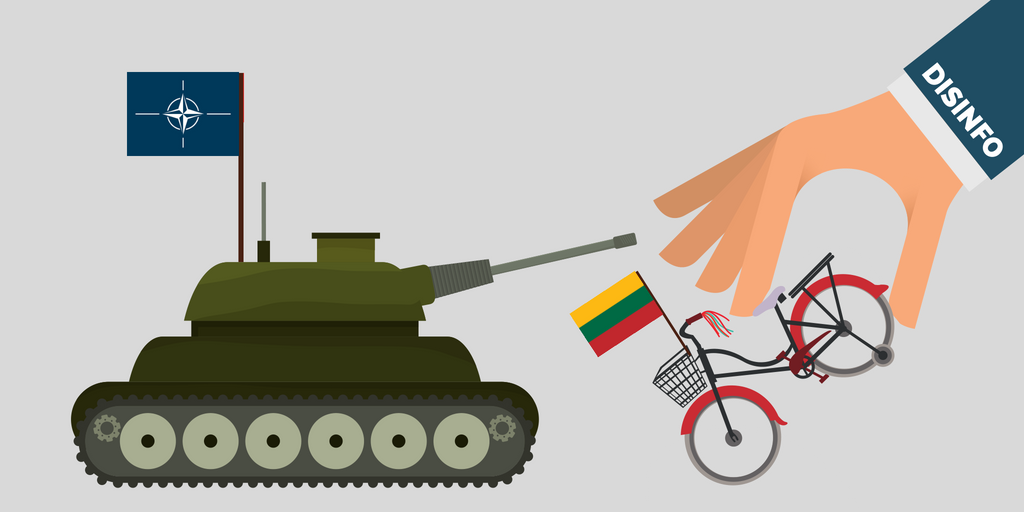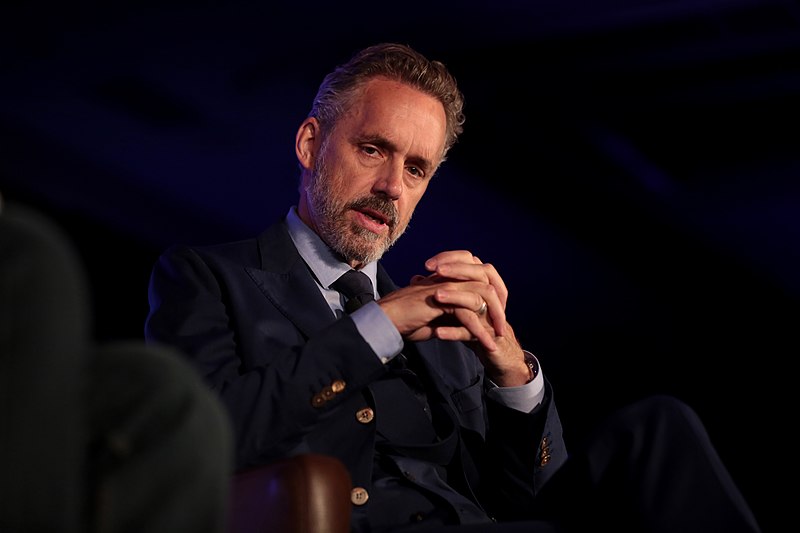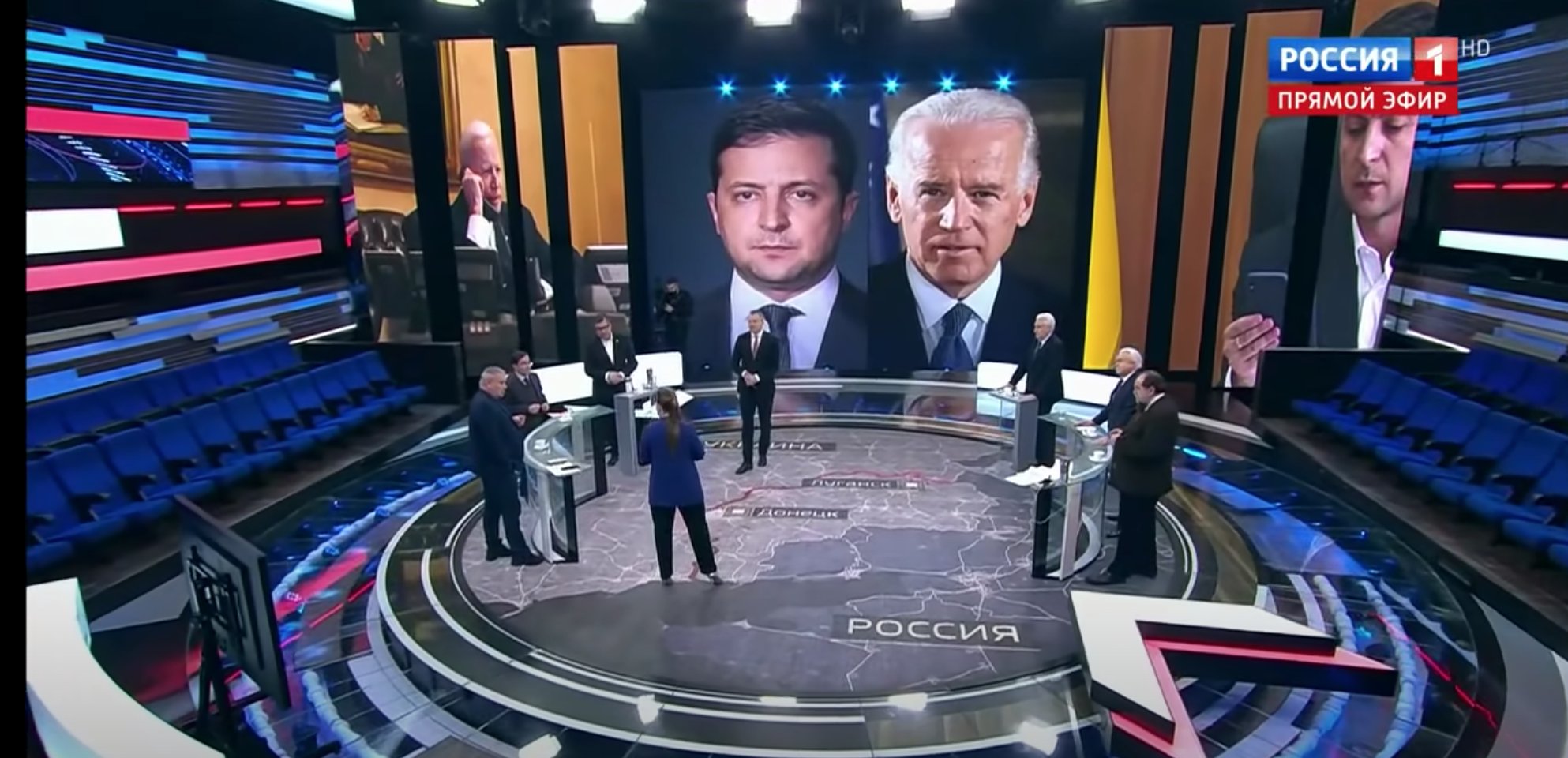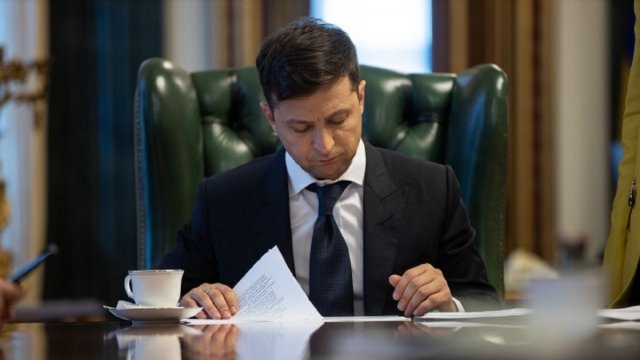Editor's Note
The Russian propaganda narratives remained unchanged last week and were spinning around the general strategy which might be called "Great Russia vs miserable World."
The Baltic state of Latvia, once again, was retrospectively blamed for killings of civilians amid Latvian transition to independence from the USSR back in 1991, and accused of restricting the rights of so-called "non-citizens," who are mostly ethnic Russians who reside in the Baltic state.
The pro-Kremlin propagandists invented another story about a perished child, this time the Russian news didn't "crucify him at a wall of fame" like they did in 2014 in the Ukrainian Donbas, but a US armored vehicle reportedly has run over the child amid the Saber strike 2018 NATO exercise in another Baltic State of Lithuania, allegedly killing him on the spot and injuring 13 American soldiers.
Of course, Ukraine was in the spotlight of the Russian disinformation as always. According to the press services of the Russian-run pseudo-states of the Donbas, whose reports are always immediately repeated without any critics by the Russian media outlets, Ukraine was going to conduct another false flag operation in the Donbas against an EU delegation to frame the Russian-hybrid forces. The occupation authorities regularly announce such operations but they never happen in more than 4 years of the ongoing war.
Once again, the Kremlin alleged that "Ukrainians and Russians are practically one people," the Kremlin's Sputnik and a Deputy Envoy to the UN whitewashed Russia in the MH17 case, Russian Defense Ministry's Zvezda TV channel asserted that no chemical agent was used in the Salisbury attack, and Putin claimed that Russian mass media is free.
Baltic brutality
A dark image of the Baltic states was (again), painted in pro-Kremlin disinformation last week. Firstly, the Latvian Army was accused of shooting civilians in 1991, during Latvia’s transition to independence from the Soviet Union [when the Soviet police special force killed 5 Latvians - Ed.]. In a new Russian documentary covering the topic of ”pseudo-revolutions,” it is claimed that Latvian Army Officers shot civilians, ”much as the case was also on Maidan 2014” according to the movie. Of course, these claims have been debunked several times before as the theme of staged "color revolutions" is recurring in pro-Kremlin disinformation.
Secondly, Latvia was again accused of restricting the rights of ”non-citizens” (primarily ethnic Russians) residing in Latvia. In fact, non-citizens enjoy equal protection under the law both in Latvia and while living or traveling abroad, and are the only group of persons, in addition to citizens, who are granted permanent residence in Latvia ex-lege. Furthermore, non-citizens are able to become citizens of Latvia through a naturalization procedure.
Thirdly, we learned from the pro-Kremlin sphere the disturbing story that a child was killed during the ongoing NATO exercise Saber Strike 2018 in Lithuania. Allegedly, a child on a bicycle was run over by an armored personnel carrier of the US Army carrying American servicemen. According to the pro-Kremlin sources, the child died on the spot and 13 Americans were injured.
As so often with disinformation, there is a grain of truth in the story: there was an accident involving 13 U.S soldiers during the exercise. But here the facts stop and a quite elaborate disinformation scheme takes over the story, faking both the news of the killed child and the outlet spreading it to look like one of Lithuania’s main news outlets.
The story was quickly debunked by journalists, the Statcom Department of the Lithuanian Armed Forces and the Minister of National Defence of Lithuania Raimundas Karoblis. Let us also recall that this is not the first time that pro-Kremlin disinformation manipulates sources to look like respected media. It is also not the first time when pro-Kremlin disinformation uses children in its narratives.
Read more on the Baltic states:
- What Putin Intends to Provoke in the Baltic States
- A Russian propaganda site incites breaking up Baltic countries
- Internet, not TV, now Moscow's main propaganda channel for Baltic countries
- Kremlin 'really thinking about occupying Baltic countries'
- Baltic past and present successes explain Moscow's schizophrenic propaganda response
- Stalin's deportation of Baltic peoples in June 1941 remembered
- Here's why the Baltics need a wall on the Russian border
- Moscow plans to 'export separatism' to Baltic countries
- How big is Russia's influence in Estonia?
The provocation game
With the World Cup in Russia approaching, we have noticed ample use of the "provocation narrative" concerning the conflict in Ukraine from pro-Kremlin sources. As we have previously noted in several cases, pro-Kremlin disinformation uses the word provocation to claim that something was a "false flag" operation, as alleged in the case of Skripal or chemical attacks in Syria.
But it can also be used to claim that something is going to happen, as was the case with the Douma attack, where pro-Kremlin media accustomed their audience to the idea that a chemical attack was about to happen in Syria prior to the Douma-attack, while also stressing that Kremlin allies would not be the culprits. The press service of the self-proclaimed Donetsk Peoples Republic ["DNR", a Russian-run pseudo-state created to hide the very fact of the Russian occupation of the region - Ed.], a notorious pro-Kremlin disinformation source, claimed that the Ukrainian security forces are preparing a provocation in Donbas against a visiting EU delegation. Given the close partnership between the EU and Ukraine, it, of course, seems unlikely that something like that would happen.

Furthermore, several Russian TV shows raised the issue of a coming ’provocation’ from Ukraine in the Donbas region during the World Cup in Russia. According to both Russian state-controlled news shows and official Kremlin representatives, such a provocation would have ’grave consequences’ for Ukrainian statehood. The Russian TV shows also more alleged Ukrainian provocations in Russia amid the FIFA Football World Cup 2018.
As the World Cup begins, there is a need not only to be aware of the general situation concerning press freedom and human rights in Russia but also to be aware of the possible exploitation of the event for disinformation purposes.
Read more on Ukraine in Russian propaganda:
- Lies about Ukraine's Euromaidan revolution that just won't go away
- How Russia's worst propaganda myths about Ukraine seep into media language
- The Kremlin's top 5 lies about Ukraine
- Top 10 fakes of Russian propaganda about Ukraine in 2015
- The Kremlin's chaos strategy in Ukraine and its helpers
- Russian media forge more papers to blame Ukraine of downing MH17
- Ukraine targeted by disinformation campaign to restore "friendship with Russia"
Editor's Note
The EU vs Disinformation team keeps an eye on the pro-Kremlin disinformation and keeps recording its most recent cases, you can browse through the disinformation database.
Read more of the Russian information warfare toolset:
- A guide to Russian propaganda
- A year of Russian propaganda: 1310 cases of Russian fakes
- Corruption and disinformation: Backstage at Russian TV
- Email chains and other Russia's propaganda tools in central and eastern Europe
- Internet bots are key players in propelling disinformation
- Fake Western experts as a propaganda tool on Russian TV
- How pranksters are used as a pro-Kremlin propaganda tool
- Intimidation as a propaganda tool in the Nordic countries
- 15-point checklist of Putin regime's propaganda techniques
- Russia's Ashmanov doctrine: the shield and sword of Kremlin propaganda
- Disinformation across ages: Russia's old but effective weapon of influence
- Kremlin disinformation campaign extremely successful
- Deception, Disinformation, and Doubt: Hybrid Warfare in Eastern Ukraine
- Russia's low-tech trolls in high-power western information space
- Moscow intensifies its efforts to use Russian emigres to promote Kremlin policies





